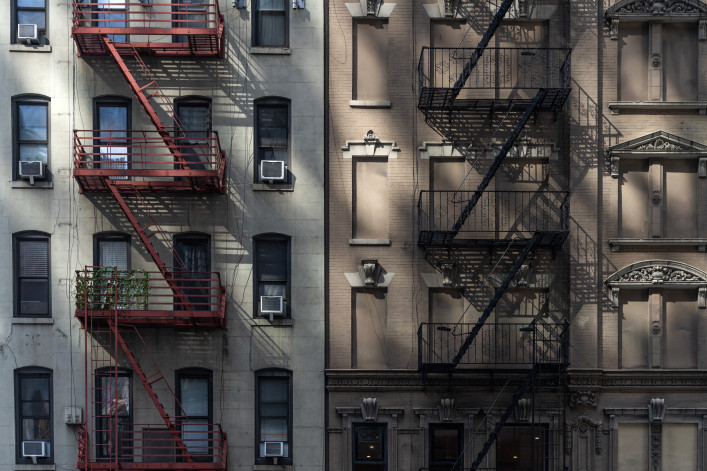How to keep your landlord happy—so you can get things fixed, get back your security deposit and avoid the tenant blacklist

It's in your best interest to have a good relationship with your landlord.
iStock
In NYC, plenty of rental buildings are so big you'll never meet your "landlord" (a.k.a. large management company that cashes your check). But in the case of renting from a small landlord, things can be a little trickier.
It's in your best interest to have a good relationship with your landlord, both to ensure you get your security deposit back in full and to make sure he or she gives you a good reference and doesn't put you on the dreaded NYC tenant blacklist.
We dedicated a whole column to the subject. And this week, My First Apartment put together its own guide for dealing with landlords, with some helpful hints, including:
- When you communicate with your landlord before moving in, be professional. Make sure emails are typo-free. And if you're calling, write down talking points in advance so you seem well-prepared.
- When you meet them in person for the first time, treat it like a job interview. Dress appropriately and make sure you have all the documents they'll need.
- Take a close read of the lease. Make sure you actually agree to everything that's in there, provisions included.
- Try to negotiate before you sign the lease. And be realistic too. If it's a really tight market, he or she is less likely to budge. But during slower times, like winter, you may get a lower rent price, or maybe some new appliances thrown in.
- Understand your lease renewal rights. If your apartment is stabilized, for example, you have the right to renew your lease and the annual increase is set by the NYC Rent Guidelines Board (this year it's a freeze for one-year leases and a 2 percent increase for two-year leases). If it's market rate, the landlord can choose not to renew your lease if he/she wants to and can raise it by as much at they want.
- If you decide to move out, notify your landlord within the time period specified in your lease—usually 60 days. Do it in writing and ask for confirmation. You'll also probably have to let brokers in to show the place.
- If your landlord's not giving back your security deposit, research your legal options. New York City has a Housing Court that handles landlord-tenant disputes. The problem: It can land you on the tenant blacklist.
To read the article, click here.
Related:
Ask Sam: Is my landlord obligated to update my ancient kitchen?
Everyone's worst fears about sketchy landlords, confirmed






















